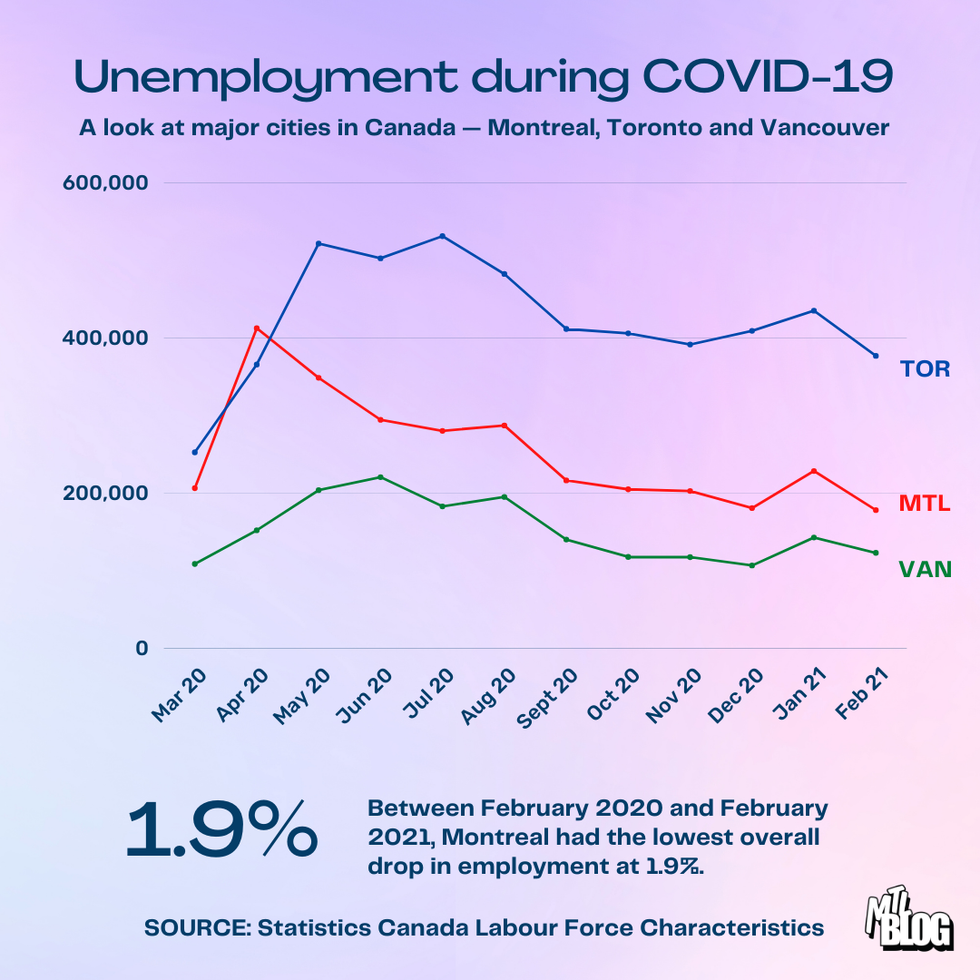Montreal Bounced Back From Pandemic Job Losses Quicker Than Toronto & Vancouver (GRAPH)
Among Canada's three major cities, Montreal experienced the least year-over-year job loss during the COVID-19 pandemic relative to its size, a new report by Statistics Canada shows.
The worst period of unemployment in Montreal occurred between April and June 2020, at the height of the first wave of COVID-19.
Editor's Choice: This Quebec Boardwalk Trail Stretches As Far As The Eye Can See Into The Forest (PHOTOS)
How many jobs were lost in Montreal in 2020?
At the start of the first wave of COVID-19 in Quebec, Montreal saw a significant drop in employment, with almost 250,000 jobs lost between March and April 2020.
By April 2020, over 412,000 Montrealers were unemployed, compared to 206,500 the month prior.
Unemployment numbers only fell to near-March levels by October 2020, when Statistics Canada reported that the number of unemployed Montrealers reached 205,000.
How did Montreal compare to other cities in Canada?
While Toronto's unemployed population was 252,700 in March 2020, over 521,000 Torontonians were unemployed by May 2020 — making up 9.5% of its total population that month.
Comparatively, Montreal's unemployed population made up 9.6% of its total population in May 2020.
In Vancouver, the unemployed population made up 8.7% of its total population in May 2020.
However, while Vancouver and Toronto's unemployment peaked in June and July 2020, respectively, Montreal's worst month for unemployment was April before dropping monthly through the fall.
Overall, Montreal saw a drop in employment of 1.9% from February 2020 to February 2021.
Toronto and Vancouver experienced drops of 4.5% and 2%, respectively, in the same time period, according to the Statistics Canada data.
What about the unemployment rate in 2021?
According to Statistics Canada, Montreal's unemployment rate was 7.4% in February 2021, compared to 9.5% in January 2021.
Its unemployment rate rose to 18.2% in April 2020 before declining monthly through October.
It matched its March unemployment rate of 8.9% in September.
Toronto's unemployment rate as of February 2021 was 10.4%.
Its worst month for unemployment was May 2020, when the rate was 15.5%.
Meanwhile, in Vancouver, the unemployment rate as of February 2021 was 7.7%.
Its worst month was June 2020, when unemployment reached a high of 14.6% before declining in the months to follow.

